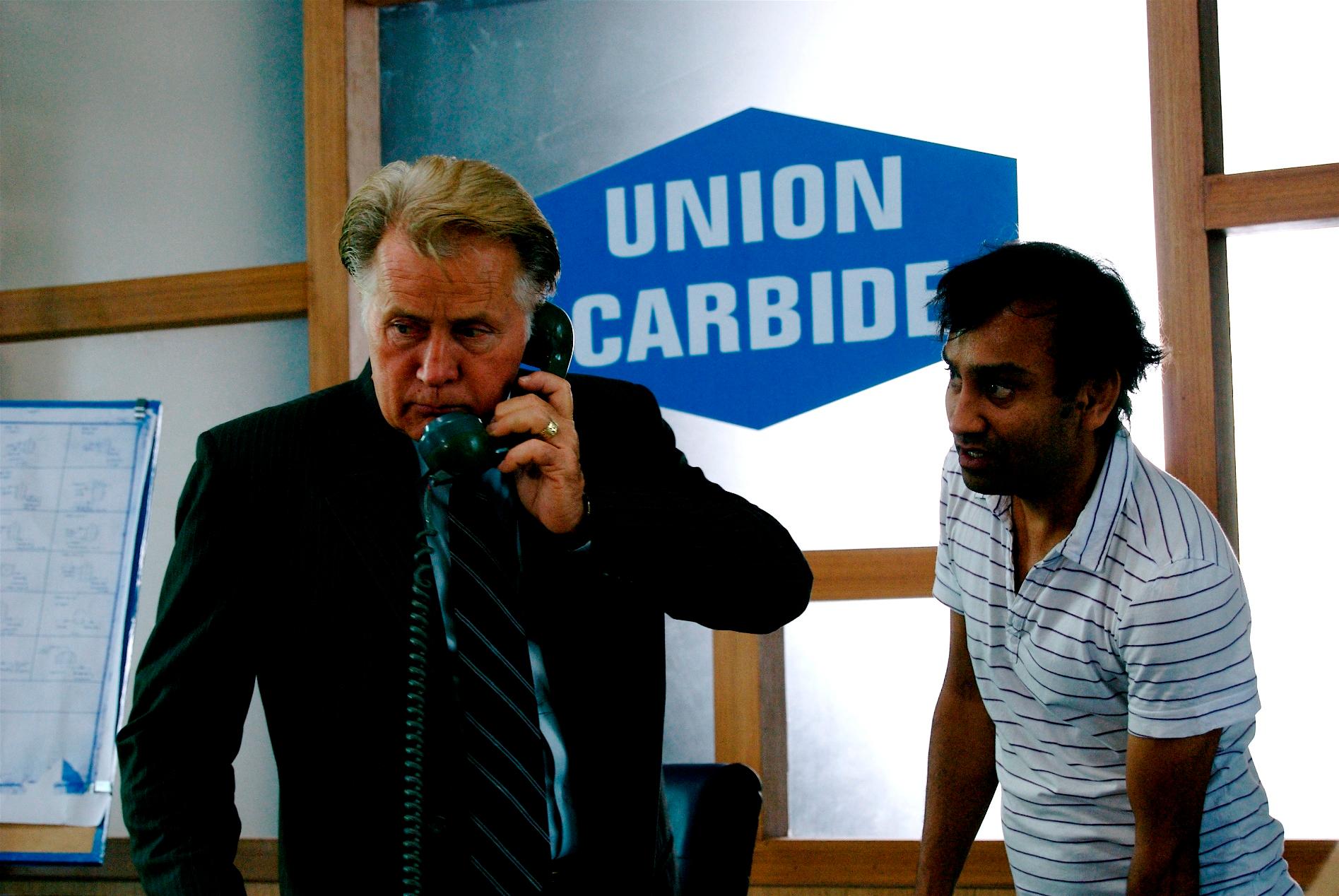A star-studded movie depicts the worst industrial disaster in history
Kal Penn and Mischa Barton filming a scene from "Bhopal: A Prayer for Rain."
One morning in December of 1984, the residents of Bhopal, India, awoke to the smell of noxious fumes.
About 40 tons of a chemical called methyl isocyanate had leaked from an industrial plant. Around 4,000 people were killed immediately, and some 15,000 more died from health complications in the days and years to come. The site of the industrial plant, which was owned by Union Carbide Corporation, remains contaminated to this day.
That accident, considered the most deadly industrial disaster on record, is the subject of a new movie called "Bhopal: A Prayer for Rain," which opens in New York on Friday.
One of the members of its star-heavy cast is Kal Penn, who plays a Bhopal tabloid writer named Motwani. Together with a fictional American journalist played by Mischa Barton, he fights to hold Union Carbide accountable to the people of Bhopal.
“I knew of the story,” says Penn, the son of an engineer and a chemist from India, "but I didn’t really get to experience the depth of it until I sat down with the writer and director, Ravi Kumar, who is from the region around Bhopal. This was a passion project for him, and I got to really understand the complexity and why he wanted to tell a story like this.”
Though India was still classified as an emerging economy in 1984, the nation of more than 1.2 billion people has surfaced as economic powerhouse — and its economic vitality is partially thanks to industrial development. With that context in mind, Penn says it was interesting to see how Indians currently feel about the Bhopal disaster.
“When we were shooting the movie, there were definitely sensitivities,” Penn says. “You would hear whispers from folks in India saying, ‘What kind of story are you telling? Which perspective are you approaching it from?’ As an American actor, I thought that was particularly interesting because I know from talking to the director, his goal was to tell as complex a story as he could.”
Penn says that the film doesn’t seek to blame corporate greed, government corruption or environmental law, but rather explores how the collective failings of the three helped to create the disaster.
“These things still happen," he points out, citing the BP oil spill in the Gulf of Mexico. "I think the hope from a lot of the folks that we’ve talked to is there should be some checks and balances — particularly as economies emerge and industrialization takes place — to ensure that we can prevent them as best as possible.”

The search for justice in the accident stretched on for decades. Union Carbide CEO Warren Anderson, played by Martin Sheen in the film, was convicted in India for his role in the disaster. But he never faced trial in the country, and the Indian government made multiple unsuccessful requests to extradite him.
Anderson’s death at 92 was confirmed last week, but only via public records nearly a month after he died. Union Carbide negotiated a $470 million settlement with the Indian government in 1989. Another lawsuit convincted eight Indian plant workers of "death by negligence" in 2010.
The site is still contaminated today, which Penn blames on government corruption and issues of enforcement and accountability within India. He also says Union Carbide and Dow Chemical, its parent company, have been able to “slip through” legal loopholes.
“It’s a tragedy because the site has certainly not been fully cleaned up and these chemicals are seeping into the ground, and there’s evidence that that’s contaminating folks that are being born today,” Penn says. “If there’s any movement that a small film like this can even bring to the conversation about accountability and prevention of these sorts of atrocities in the future, I think it’s a good thing.”
This story is based on an interview from PRI's The Takeaway, a pulbic radio program that invites you to be part of the American conversation.